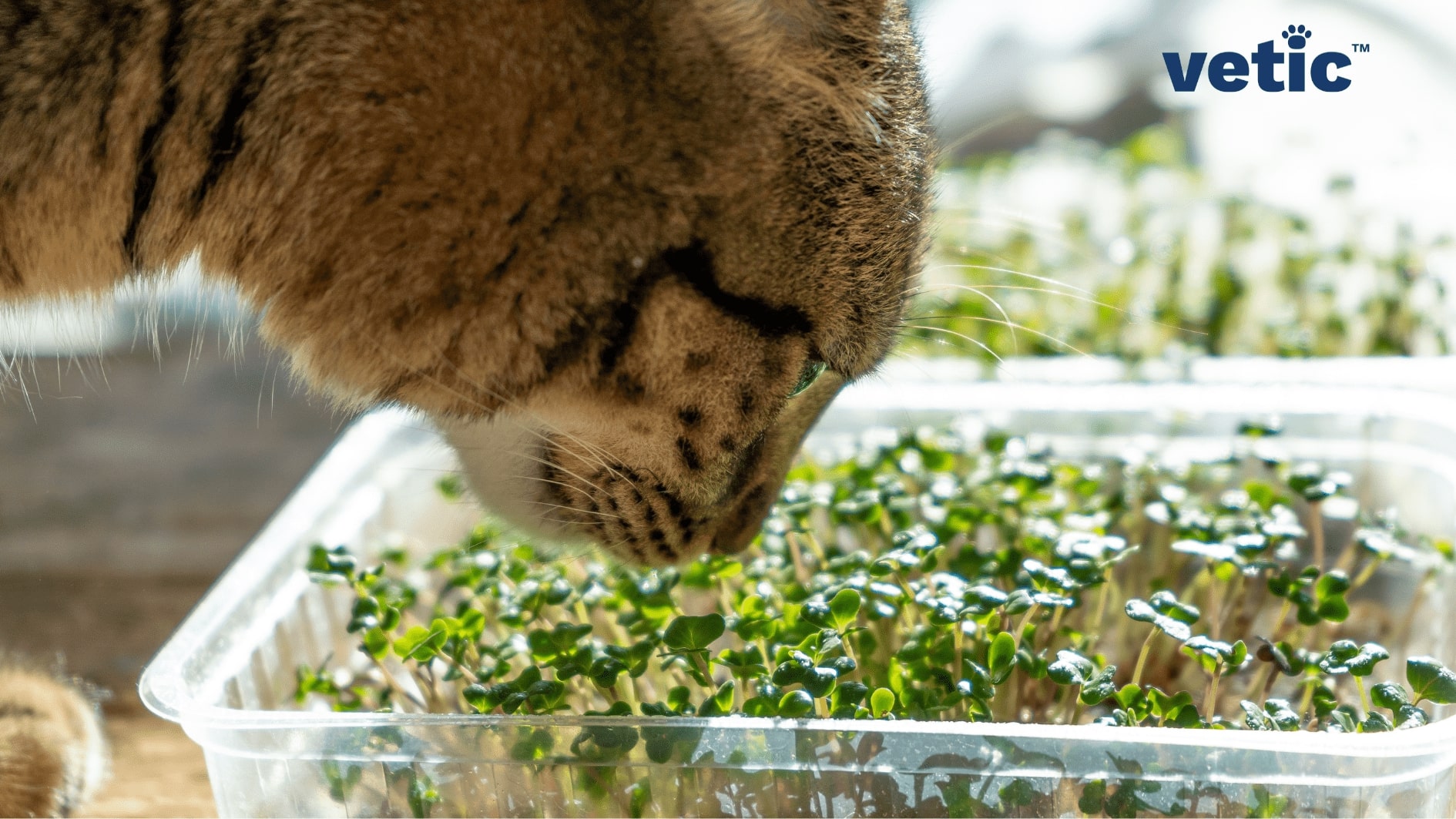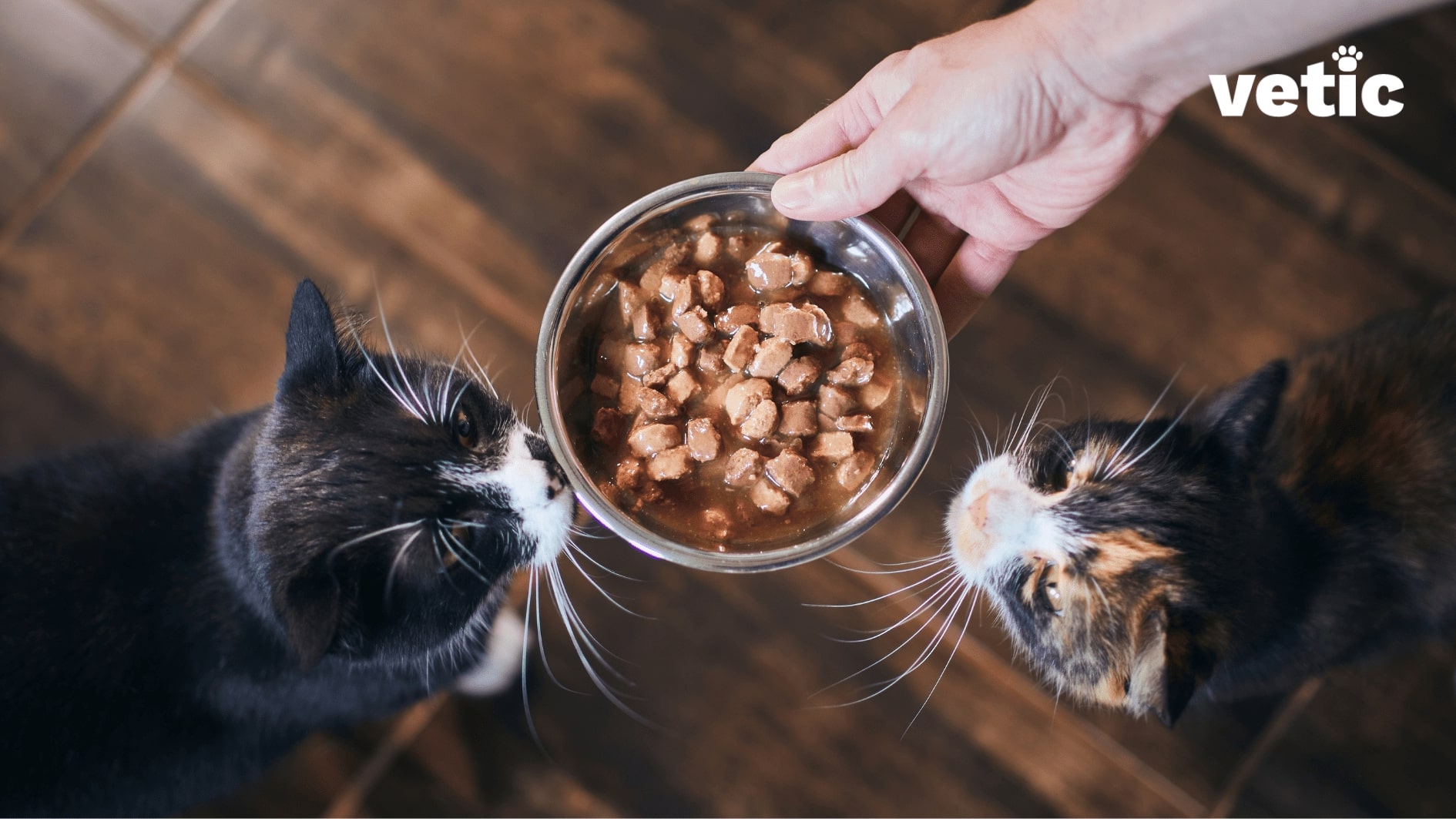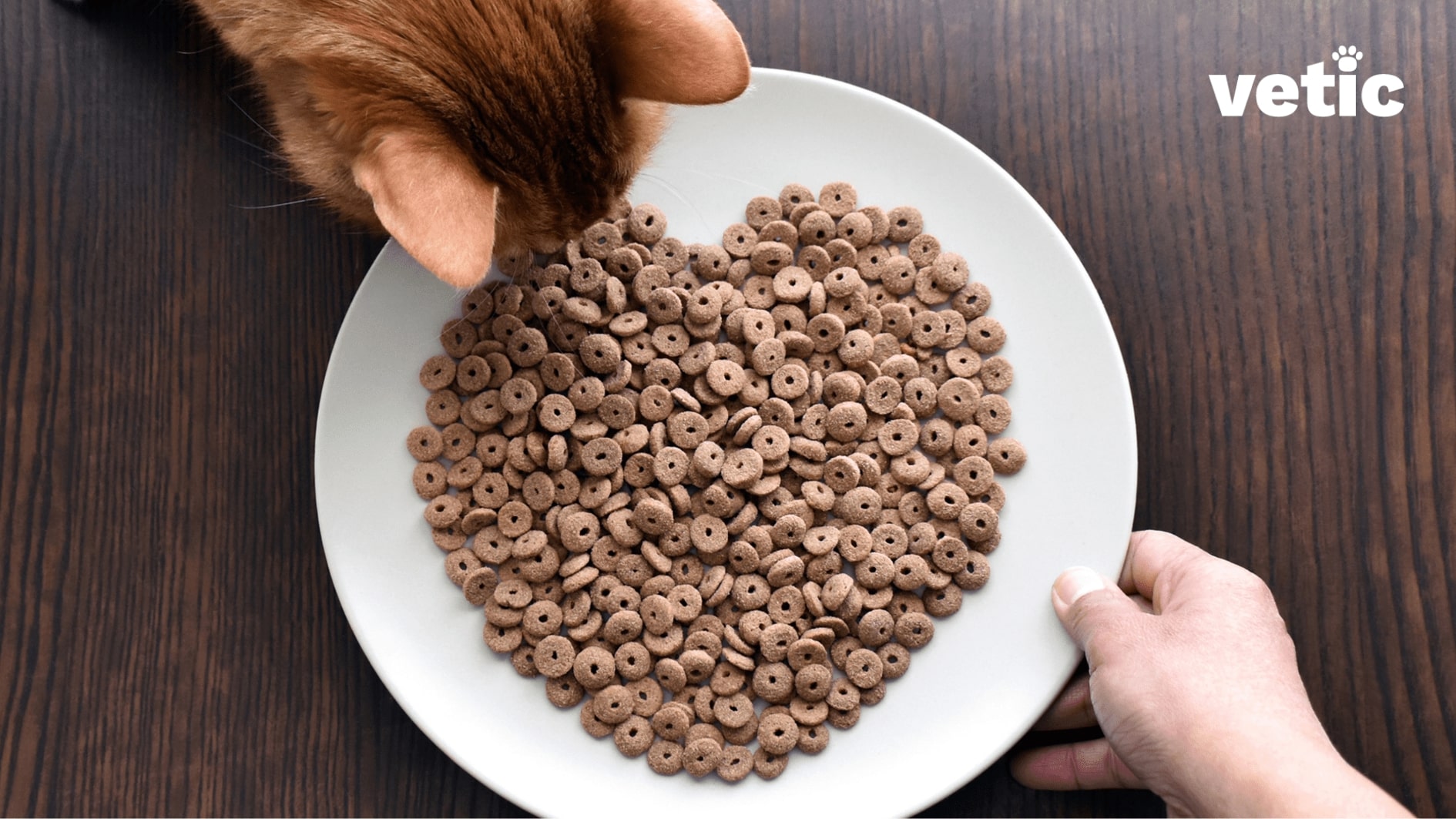We want the best for our feline friends, including their diet. We have had many cat owners ask us, “can my cat be vegetarian?”
While eating lots of fresh green veggies is good for us, a cat’s digestive system and nutrition requirements are very different from that of human beings.
When it comes to feeding cats, it’s crucial to understand their natural habitat, hunting habits, and unique nutritional requirements. In this article, we will find out why cats cannot thrive on a vegetarian diet and learn about the essential nutrients that cats need for their survival.
Dogs Can Thrive on Vegetables, But Can a Cat be Vegetarian?
The Digestive System Differences: Cats vs. Dogs
Before we dive into the specifics of a cat’s diet, let’s understand the basic differences between the digestive systems of cats and dogs.
Cats have shorter digestive tracts as compared to dogs and enzymes that cannot break plant proteins down. Shorter digestive tracts mean cats can easily digest simple carbohydrates, simpler proteins to absorb essential amino acids and fatty acids from animal proteins.

Protein requirements in cats are much higher than that of dogs.
Dogs have longer digestive tracts and the necessary enzymes to digest plant matter. They can easily digest vegetables and even fruits to absorb the vitamins, minerals and proteins from plant matter.
Cats are obligate carnivores, whereas dogs are omnivores. That means cats have evolved to rely heavily on meat-based diets for survival. Their digestive systems have adapted to efficiently process animal-based proteins and fats, making it essential for their overall health and well-being.
What Nutrients are Necessary for Your Cat’s Optimal Health?
Cats have specific dietary requirements that are necessary to maintain their health and vitality. These vitamins, amino acids and fatty acids are only present in meat and some fish. Although our feline friends require fiber, they have to derive it from animal sources. Cats cannot be vegetarian.
1. The Role of Protein in a Cat’s Diet
Protein is a critical component of a cat’s diet, serving as the building blocks for healthy muscles, organs, and tissues. Cats require a higher protein intake compared to dogs due to their unique metabolism. A deficiency in protein can lead to muscle wasting, weakened immune system, and poor overall growth.
2. Why do Cats Need Taurine?
Taurine is an amino acid essential for cats as they are unable to synthesise it adequately in their bodies. It plays a crucial role in maintaining a healthy heart, eyesight, and reproductive system. Taurine deficiency can lead to heart disease, blindness, and reproductive complications.

Commonly available cat food always contains taurine. Next time, check the taurine levels in your cat’s food before purchasing!
3. What is Arachidonic Acid? Why Do Cats Need It?
Arachidonic acid, an omega-6 fatty acid, is vital for cats’ skin, coat, and reproductive health. Cats cannot efficiently convert plant-based omega-3 fatty acids into arachidonic acid, making it necessary to obtain this nutrient from animal sources. Deficiency in arachidonic acid may result in poor skin condition, impaired coat quality, and reproductive issues.
4. Why do Cats Require Vitamin A?
Vitamin A is crucial for a cat’s vision, immune system, and overall growth. Unlike humans, cats cannot convert plant-based beta-carotene into vitamin A efficiently. A lack of vitamin A can lead to vision problems, weakened immune function, and growth abnormalities.
5. Why do Cats Need Vitamin B12?
Vitamin B12 is essential for a cat’s energy production, nerve function, and red blood cell formation. Cats can only obtain this vital nutrient from animal-based sources. Deficiency in vitamin B12 may cause anaemia, nervous system disorders, and lethargy.
Is your cat receiving all the necessary nutrients from their current diet? Always take your cat to the vet at least twice a year. Complete the diagnostic tests recommended by the veterinarian to stay on top of your cat’s nutritional profile.
Why Can’t Cats be Vegetarians?
Cats have unique nutritional needs that cannot be met through a vegetarian diet. Unlike humans and dogs, cats lack specific enzymes required to efficiently process and derive nutrients from plant matter.

Here are a few reasons why cats should not be fed a vegetarian diet:
1. Vegetarian Diets Won’t Provide Cats with Enough Protein
Plant-based proteins lack essential amino acids like taurine and arachidonic acid that cats need for optimal health. Without sufficient animal protein, cats may experience muscle wasting, weakened immune function, and poor growth.
2. Vegetarian Diets Will Not Provide All Nutrients
Vegetables alone cannot provide the complete spectrum of vitamins, minerals, and nutrients that cats require for their overall well-being. Essential nutrients like taurine, arachidonic acid, vitamin A, and vitamin B12 are primarily found in animal-based sources.
What Can You Feed Your Cat?
To ensure your cat’s nutritional needs are met, it’s essential to provide a balanced and species-appropriate diet. Here are some ideal food options for your feline friend:

1. High-Quality Commercial Cat Food
Choose premium-quality cat food that contains high levels of animal-based proteins, such as chicken, beef, or fish. Look for products that are specifically formulated to meet the nutritional needs of cats.
2. Wet or Canned Food
Wet or canned cat food can be an excellent option as it provides moisture along with essential nutrients. Ensure the product contains a good balance of proteins, fats, and other vital nutrients.
You should be able to find a variety of cat food brands and types at a pet clinic near you. Since cats can be picky eaters, try to introduce them to a wide range of dry and wet foods when they are kittens.
What’s the Take-home Message?
Cats are obligate carnivores with unique nutritional requirements that cannot be met through a vegetarian diet. Their digestive systems, hunting habits, and specific nutrient needs necessitate a diet rich in animal-based proteins and fats.
By providing your cat with a balanced and species-appropriate diet, you are ensuring their overall health, vitality, and well-being. Remember, the right nutrition is the key to a happy and healthy feline companion.
Speak to a veterinarian near you or a feline nutritionist to find out which cat food is ideal for your cat. Their dietary needs will depend on their breed, age and unique health conditions.
